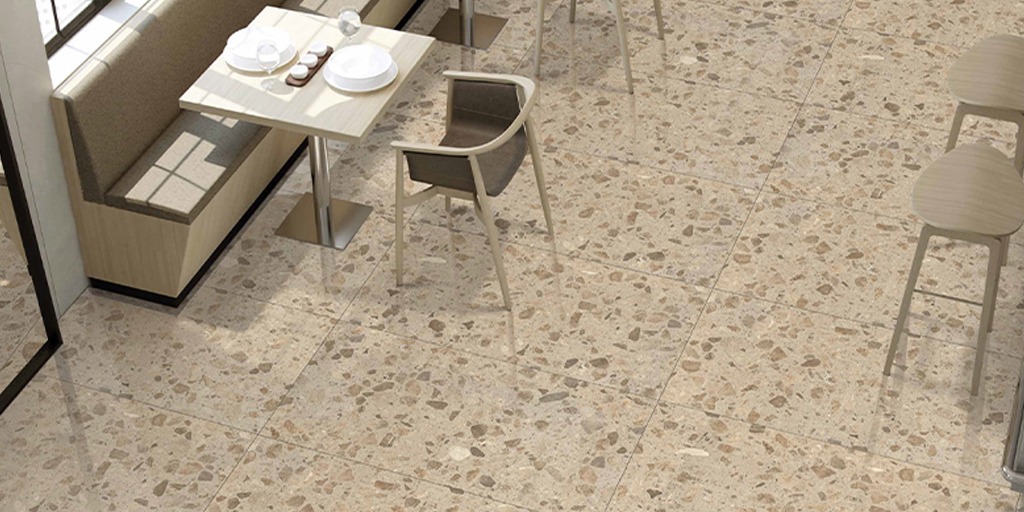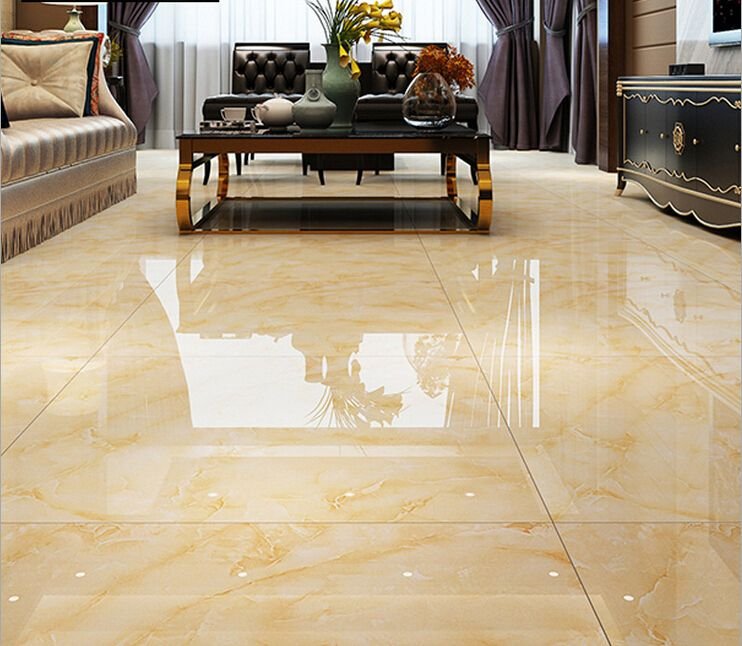Stepping into a new home is an exciting experience, and choosing the right flooring is often a top priority. India, with its diverse architectural styles and climate, offers an array of floor tile options that cater to different tastes and budgets. But navigating the plethora of choices can be overwhelming. This comprehensive guide will explore the best floor tiles for homes in India, considering factors like durability, aesthetics, and functionality, to help you make an informed decision.

Image: www.bathlineindia.com
From classic ceramic tiles to contemporary porcelain and the luxurious allure of natural stone, this article will delve into the pros and cons of each type, discussing factors like water resistance, slip resistance, maintenance requirements, and overall cost. Whether you’re revamping your existing home or constructing a new dream abode, understanding the diverse options available will help you create a space that is not only beautiful but also practical and long-lasting.
Ceramic Tiles: Timeless Elegance and Budget-Friendly
Ceramic tiles have long been a staple in Indian homes, known for their affordability and versatility. They’re widely available in countless patterns, colors, and finishes, catering to various design aesthetics. Ceramic tiles are generally glazed, providing a smooth and easy-to-clean surface. They are also highly water-resistant, making them ideal for kitchens, bathrooms, and even outdoor spaces.
Types of Ceramic Tiles:
- Glossy Tiles: Reflected light to create a bright and spacious ambiance. Perfect for modern and contemporary interiors.
- Matte Tiles: Provide a softer look and hide imperfections better, ideal for traditional and rustic spaces.
- Engobe Tiles: These tiles have a unique earthy look and feel, with a layer of colored clay applied before glazing.
- Digital Tiles: Modern technology allows for intricate patterns and designs, offering endless possibilities.
Pros of Ceramic Tiles:
- Affordability: Ceramic tiles are generally budget-friendly compared to other materials like porcelain or natural stone.
- Durability: They can withstand wear and tear, making them suitable for high-traffic areas.
- Easy Maintenance: Ceramic tiles are easy to clean and maintain, requiring simple sweeping and occasional mopping.
- Water Resistance: Their glazed surface makes them perfect for wet areas like kitchens and bathrooms.
- Variety: A vast range of colors, patterns, and sizes are available, catering to different design tastes.

Image: www.sentosa.in
Cons of Ceramic Tiles:
- Porosity: While glazed, some ceramic tiles can absorb moisture and stain if not properly sealed.
- Scratch Resistance: Although durable, they can scratch if exposed to abrasive objects.
- Slip Resistance: Glossy ceramic tiles can be slippery when wet, especially for elderly individuals or young children.
Porcelain Tiles: Durability and Sophistication
Porcelain tiles, a more refined version of ceramic tiles, are known for their exceptional durability and elegance. Made from denser clay and fired at higher temperatures, they are less porous and more resistant to scratches, stains, and wear and tear. This makes them suitable for both high-traffic areas and demanding conditions like outdoor spaces.
Types of Porcelain Tiles:
- Polished Porcelain Tiles: These tiles are smooth and reflective, adding a sophisticated touch to modern interiors.
- Matte Porcelain Tiles: Offer a subtle elegance with a low-sheen finish, suitable for both traditional and contemporary spaces.
- Wood-Look Porcelain Tiles: A popular choice for creating a warm and natural ambiance without the maintenance challenges of real wood.
- Large-Format Porcelain Tiles: Minimise grout lines and create a seamless look, ideal for spacious areas.
Pros of Porcelain Tiles:
Cons of Porcelain Tiles:
Natural Stone: Timeless Charm and Luxury
For those seeking a touch of natural beauty and luxury, natural stone tiles offer an unparalleled aesthetic. From the classic elegance of marble to the rustic charm of sandstone, natural stone adds a unique character to any space.
Popular Types of Natural Stone Tiles:
- Marble: Known for its veined patterns, marble exudes elegance and sophistication, often used in luxurious kitchens and bathrooms.
- Granite: A durable and hard-wearing stone, granite is available in various colors and patterns, making it ideal for kitchen countertops and floors.
- Limestone: A natural stone with a soft and earthy texture, often used in bathrooms and living rooms to create a calming ambiance.
- Sandstone: Has a rustic and earthy appeal, perfect for outdoors and creating a laid-back vibe in interior spaces.
Pros of Natural Stone Tiles:
- Unique Beauty: Each natural stone tile has a unique, irreplaceable pattern and texture, adding character to your space.
- Durability: Natural stone tiles are known for their strength and resistance to wear and tear.
- Versatility: Available in a wide range of colors, textures, and finishes to suit various architectural styles.
- Timeless Appeal: Natural stone tiles have a timeless elegance that never goes out of style.
Cons of Natural Stone Tiles:
- High Cost: Natural stone tiles are significantly more expensive than ceramic or porcelain counterparts.
- Maintenance: They require regular sealing to prevent staining and damage, and maintenance can be labor-intensive.
- Porosity: Natural stone can absorb moisture and stain if not properly sealed.
- Slip Resistance: Some natural stone tiles, particularly polished varieties, can be slippery when wet.
Factors to Consider When Choosing Floor Tiles
Beyond the type of tile, several factors influence your choice of flooring. Carefully consider these aspects to ensure you select the ideal tiles for your home:
1. Traffic and Wear and Tear:
High-traffic areas like hallways, kitchens, and living rooms require durable tiles that can withstand heavy foot traffic. Consider porcelain tiles or durable natural stone options like granite for these areas. For bedrooms and less-traveled spaces, ceramic tiles or even engineered wood flooring can be suitable alternatives.
2. Aesthetics and Design:
Consider your home’s architectural style, color palette, and personal preferences. Do you prefer a modern and minimalist look, a rustic and earthy ambiance, or a classic and elegant design? The tile’s color, pattern, and texture will significantly impact the overall aesthetic of your space.
3. Budget:
Floor tiles come in a wide price range depending on the material, quality, and brand. Set a realistic budget before you begin your tile hunt to avoid going over your financial limits.
4. Maintenance Requirements:
Different tile materials require varying levels of maintenance. While ceramic and porcelain tiles are relatively low-maintenance, natural stone requires regular sealing to prevent staining and damage. Factor in the time and effort you’re willing to invest in ongoing maintenance.
5. Slip Resistance:
Slip resistance is a critical consideration, particularly in wet areas like kitchens and bathrooms. Matte porcelain tiles and textured ceramic tiles offer better slip resistance, enhancing safety, especially for elderly individuals and young children.
6. Water Resistance:
For areas like kitchens, bathrooms, and outdoor spaces, water resistance is crucial. Ceramic and porcelain tiles generally excel in this aspect due to their glazed surfaces. Natural stone tiles require regular sealing to achieve adequate water resistance.
Best Floor Tiles For Home In India
Conclusion:
Choosing the right floor tiles for your Indian home involves considering various factors, from durability and aesthetics to budget and maintenance. From budget-friendly ceramic tiles to luxurious natural stone, the options are vast and diverse. This guide has provided a comprehensive overview of the most popular tile materials in India, helping you make an informed decision about your dream flooring. Remember to factor in your individual needs, preferences, and budget to create a space that is both beautiful and functional.





